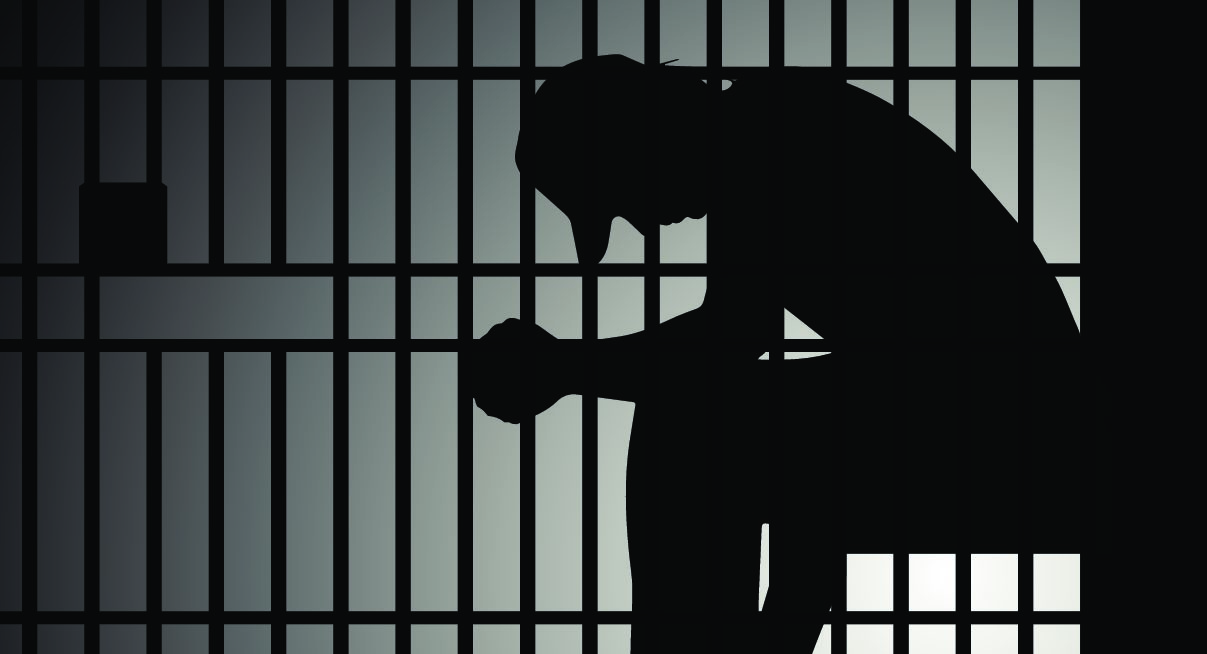News
Mental illness cases up in California jails
 Image of an inmate behind bars. Illustration: PhoelixDE, via Shutterstock)
Image of an inmate behind bars. Illustration: PhoelixDE, via Shutterstock)Mental illness cases in California jails have significantly increased since 2009, health policy experts reported Thursday.
California Health Policy Strategies, a Sacramento-based consulting group, gathered administrative data from the Board of State and Community Corrections and discovered a 42 % increase in mental health cases reported and an 80 % increase in inmate medication prescriptions over the last 10 years.
About 1 in 4 inmates met the threshold for “serious psychological distress” while 1 in 19 of the general population of non-incarcerated people met that threshold.
David Panush, president of California Health Policy Strategies said the report sheds light on a “problem we have been talking about for a long time.”
“What we are finding is that too many individuals with mental illness are being incarcerated. New strategies are needed to provide alternatives,” Panush said.
“Data on mental illness among incarcerated populations is difficult to obtain. However, the available data, which mostly comes from surveys, suggests that mental illness in jail or prison is prevalent and that individuals with a mental illness are overrepresented in jail or prison,” the report states. 
According to the report, about 1 in 4 inmates met the threshold for “serious psychological distress” while 1 in 19 of the general population of non-incarcerated people met the threshold for serious psychological distress. The results suggest a costly, ineffective system, the report continues.
The 2017 Stanford Justice Advocacy Project found incarcerated individuals experiencing mental illnesses are likely to remain in jail longer than those who are not.
“Incarcerated people experiencing a mental illness are also more likely to be disciplined and isolated in segregated housing (i.e., solitary confinement). Once in solitary confinement the harsh conditions of the segregation worsen the symptoms of mental illness. Moreover, not only are the mentally ill more likely to be placed in solitary confinement, they often find it exceedingly difficult to meet the requirements for release,” the report states.
The Bureau of Justice in 2013 found that suicide is the leading cause of death in correctional facilities, and of those, 15 to 25 % are those with mental illnesses. There is also a high cost of housing individuals with mental illness, a Judicial Council of California report stated.
“Community mental health treatment is less costly and more effective than incarceration.”
Gov. Gavin Newsom announced last year the Healthy California for all Commission, which includes streamlined access to mental health treatments post- incarceration. Panush said it will also allow inmates easier access to healthcare, despite factors like income.
“Capturing information is a way of focusing attention on the problem,” Panush said.
Want to see more stories like this? Sign up for The Roundup, the free daily newsletter about California politics from the editors of Capitol Weekly. Stay up to date on the news you need to know.
Sign up below, then look for a confirmation email in your inbox.

Leave a Reply